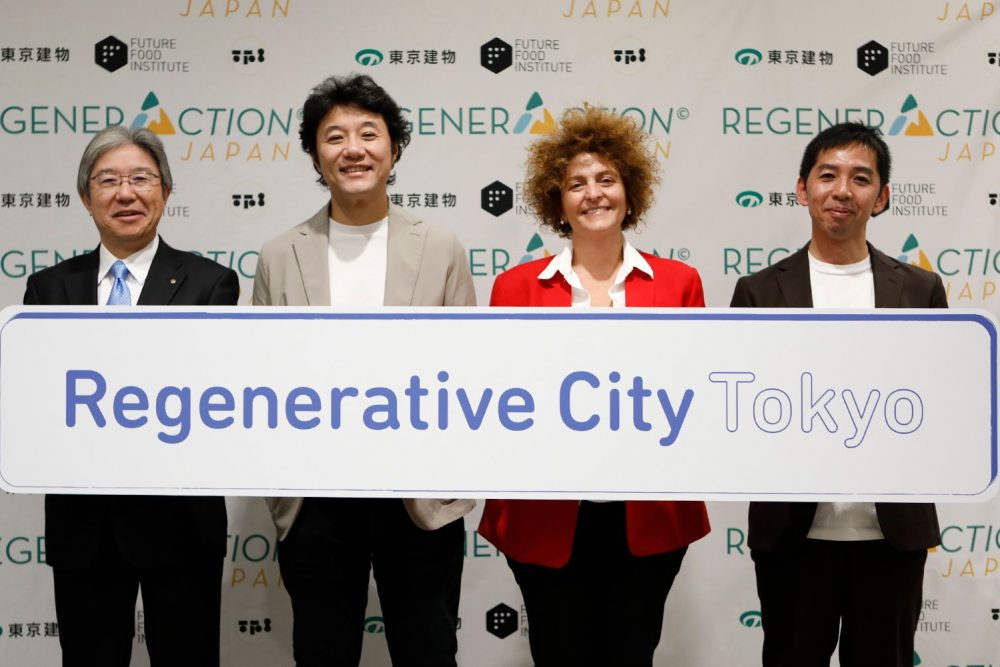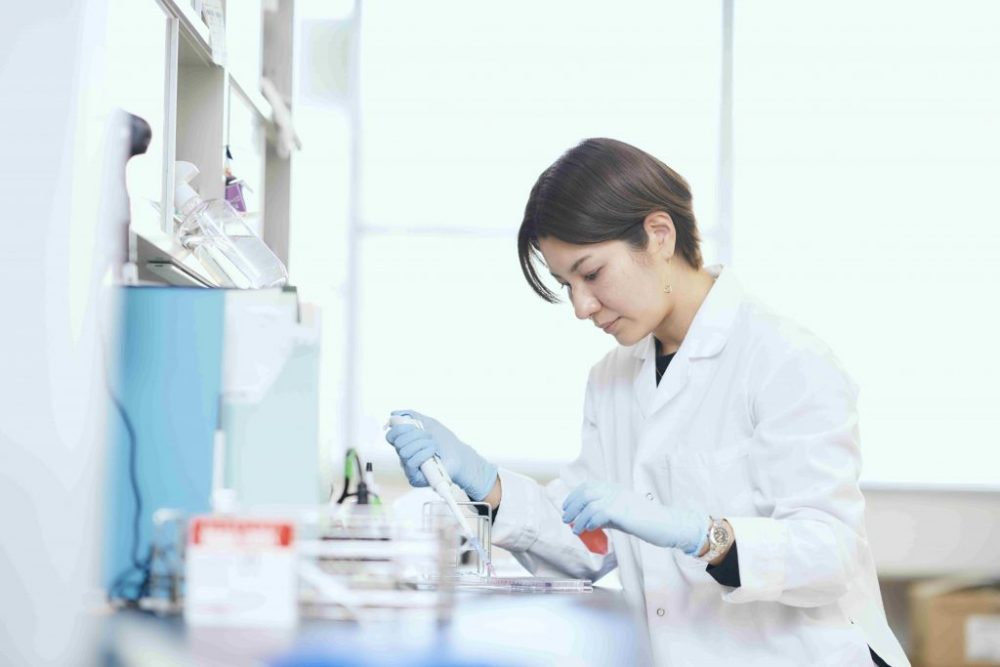Asian Young Dietitian Network Launches in Japan
Twelve countries and regions participated in the launch of the Asian Young Dietitian Network aimed at enhancing the status of dietitians in the region.

このページを 日本語 で読む
The Asian Young Dietitian Network (AYDN) was launched in Japan in late 2023. Young dietitians from various Asian countries pledged to work collaboratively to address diet-related issues in their respective nations. Participants from 12 countries and regions including Japan declared their commitment to fostering solidarity among dietitians in Asia.
Enhancing the Status of Dietitians
On December 1, 2023, the kickoff meeting for the Asian Young Dietitian Network (AYDN) took place in a conference room at Ajinomoto's headquarters in Tokyo's Chuo Ward. Approximately 20 nutritionists ranging in age from their 20s to 40s gathered for the event.
Attendees came from Bangladesh, India, Indonesia, Philippines, Sri Lanka, Malaysia, Taiwan, Thailand, Cambodia, Vietnam, and Japan, totaling 11 nations. With Bhutan participating online, a total of 12 countries/regions were represented.
At the meeting's opening, Ms Nguyen Thu Trang, a Vietnamese graduate student studying at Jumonji University, gave a presentation on AYDN's objectives, a timeline leading up to its launch, and the direction of future activities.
"With this network, we aim to enhance the status of dietitians in each country and realize societies that hold dietitians in high regard," Nguyen stated passionately.
The Origin of AYDN
The roots of AYDN can be traced back to the 8th Asian Congress of Dietetics in Yokohama in August 2022. This conference, held every four years, brings together member countries of the Asian Federation of Dietetic Associations (AFDA), with Japan hosting for the first time in 2022.
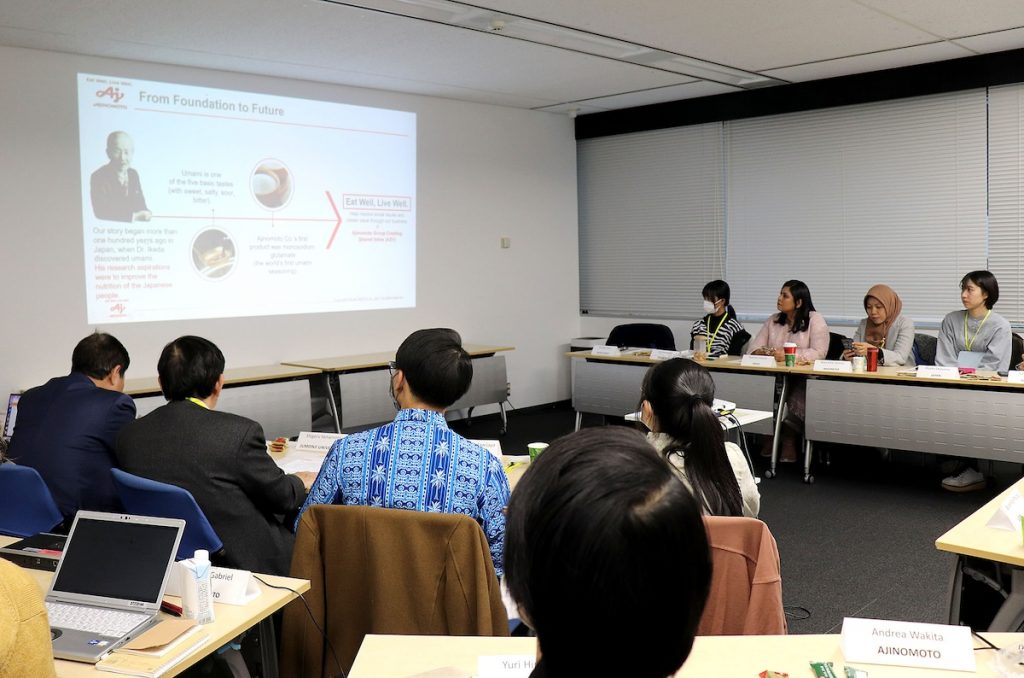
A workshop titled "Let's Talk with Asian Young Dietitians about Our Future" was organized by students, graduate students, and alumni of Jumonji University. This workshop ignited intense discussions among dietitians from various countries regarding their environments and challenges.
Nurturing young dietitians is essential to address nutritional challenges in Asia. To ensure the workshop's impacts extended past the single event, Ajinomoto offered support. This led to the establishment of AYDN as a collaborative research effort between Ajinomoto and the Asian Nutrition and Food Culture Research Center at Jumonji University.
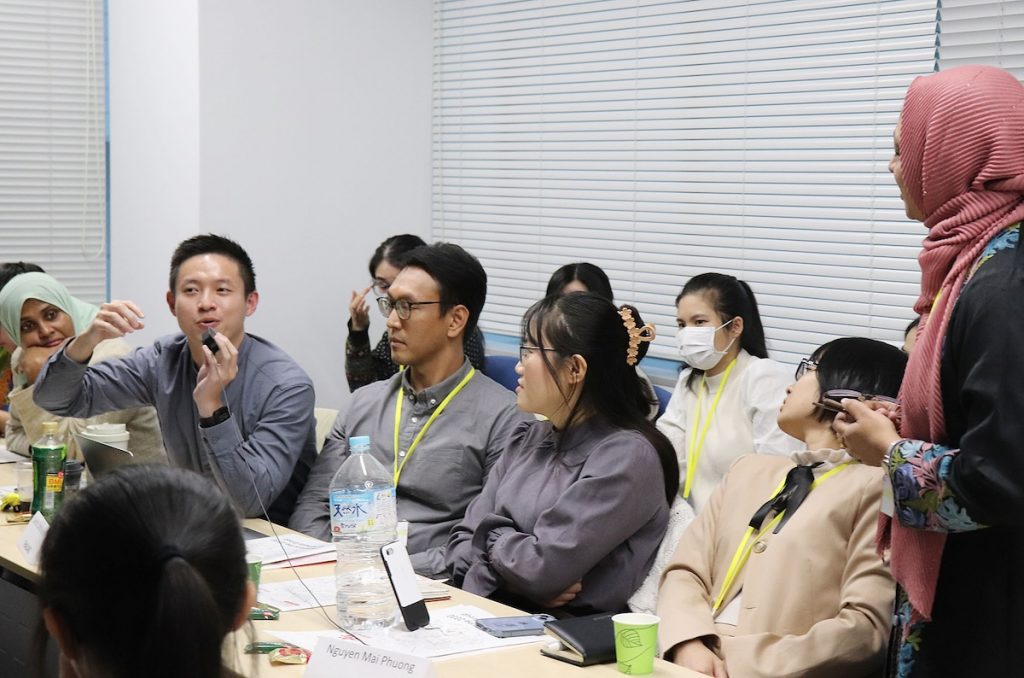
Going forward, the network plans to hold periodic online information exchange sessions, conduct collaborative research and surveys in various countries, and to release research results. An in-person meeting is scheduled for April 2024 in Bangkok, Thailand.
Malnutrition and Obesity in Asia
At the meeting, participants presented information about their respective countries' rich food cultures, as well as health issues and training for nutritionists.
In Bangladesh, 37% of women of childbearing age (15-49 years) suffer from anaemia, with an even higher rate of 43% among infants and toddlers. This is attributed to factors such as malnutrition, infectious diseases, and poverty.

In Cambodia, alongside malnutrition in small children, there is a problem of overnutrition in other age groups due to the consumption of high-sugar and high-fat diets.
In India, 40% of the population experiences malnutrition, while another 40% grapple with obesity. A particularly serious issue is the increasing number of people suffering from diabetes.
Despite the prevalent notion that Vietnam does not have an obesity problem, childhood obesity has become a rising concern even in urban areas.
Presentations presented a picture of issues faced in the region. While the problem of hunger in Asia has improved with economic growth, challenges such as poverty-driven malnutrition remain. Asia is also grappling with issues like overnutrition, obesity, and an increase in diabetes, partly stemming from traditional diets high in carbohydrates and fats, as well as the influence of Westernized foods.
Are Dietitians Respected?
Most of the participating countries have institutions in place for training nutritionists. According to Naaznin Husein, there are approximately 17,000 registered dietitians in India.
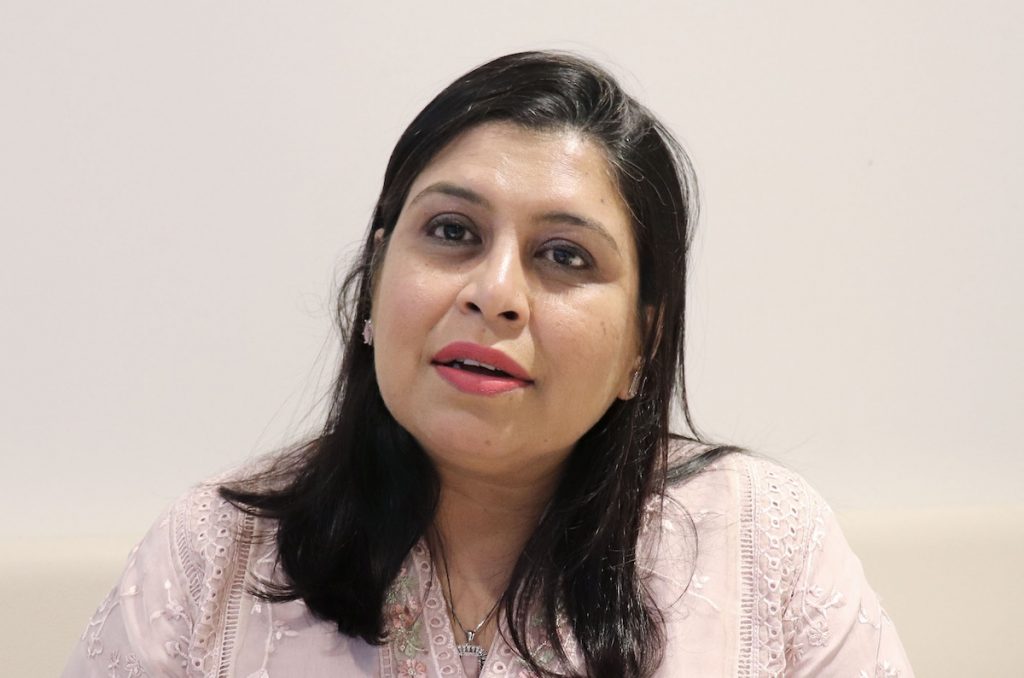
In Thailand, the Thai Dietetic Association is celebrating its 50th anniversary in 2024.
Meanwhile, Ms Ry Manydine noted, "In Cambodia, there is no established system for nutritionists, and one must go abroad to become a dietitian."
Ry is currently studying at Musashino Nutrition College in Saitama Prefecture. She plans to continue her studies at Jumonji University's graduate school after graduation.
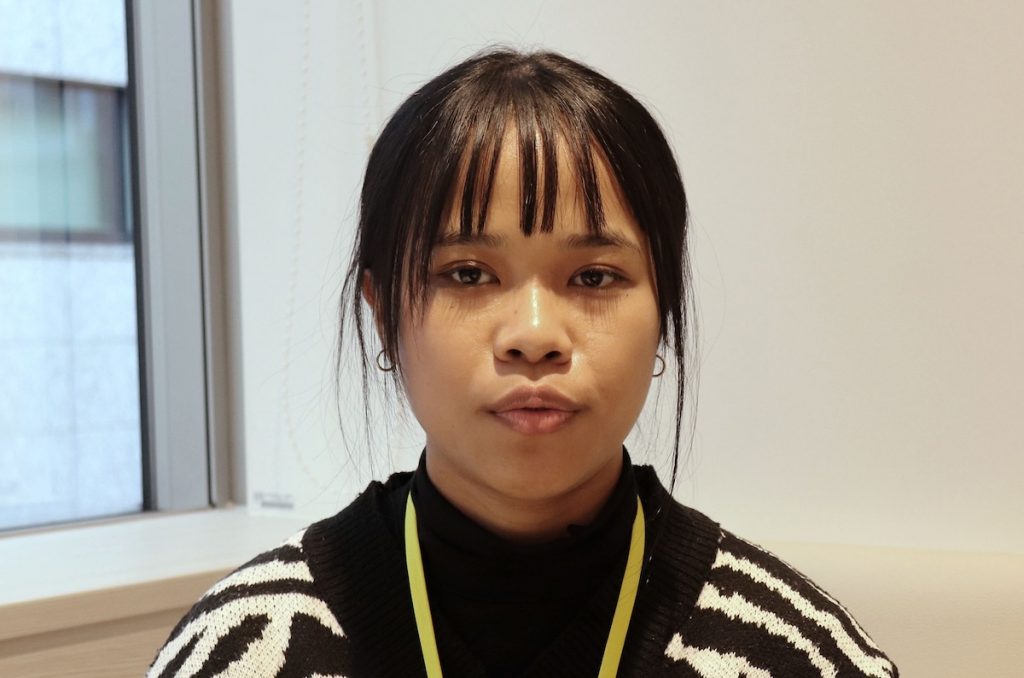
In the future, Ry will return to Cambodia to work on solving nutrition issues in her home country. She reports high expectations for AYDN going forward.
Notably, many presenters addressed the question "Are dietitians respected?" during their presentations.
Lower Pay than Bubble Tea Shops
Chu Tzu Yun, a dietitian from Taiwan, noted, "In 1968, the Dietitians Act was enacted in Taiwan. While dietitians are respected and the demand for their services is increasing, it's strange that salaries are so low."
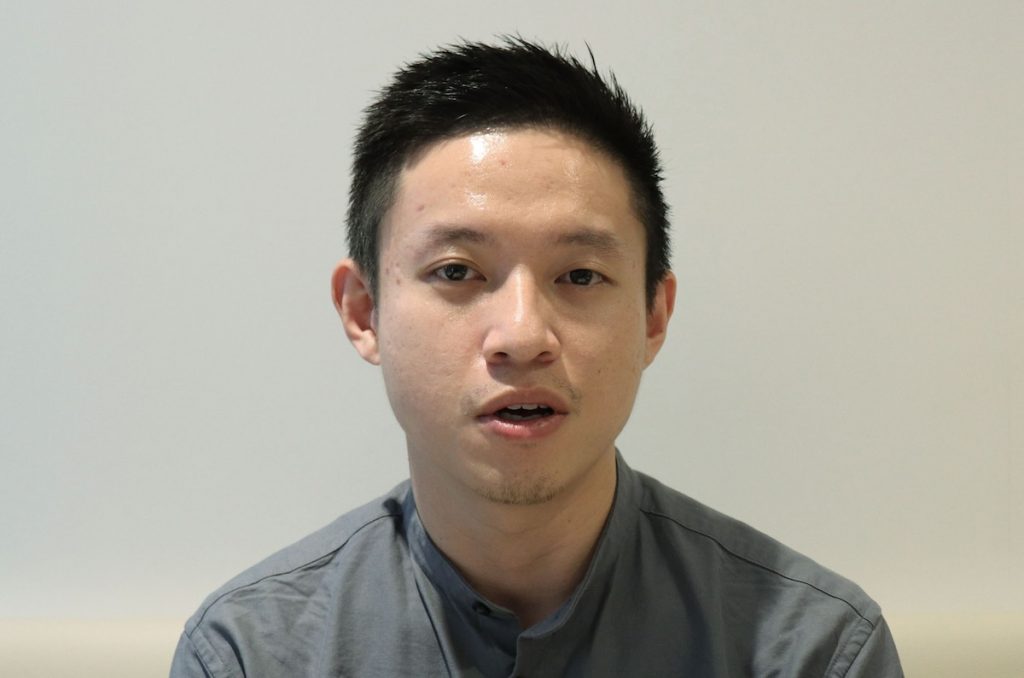
The qualification requires an undergraduate degree and completion of roughly 500 hours of training in hospitals or schools. Even so, the job listings he showed us proved that working as a dietitian pays lower wages than working at a bubble tea shop.
The job listing indicated a monthly salary as a shop worker to be 35,000 TWD (roughly $1,115 USD), whereas a nutritionist specializing in diabetes counseling at a hospital would earn 33,100 TWD ($1,055 USD).
Of course, differences in working hours make it difficult to compare the two jobs solely by the amount they pay. However, the low starting monthly income was unmistakable. The disparity between the salaries of nurses and doctors compared to dietitians was common across all participating countries.
Raising the Profile of Dietitians
"Can we truly say that dietitians are respected when their salaries are kept low?"
Professor Shigeru Yamamoto, RD, PhD of Jumonji University's graduate school, posed this question to the participants.
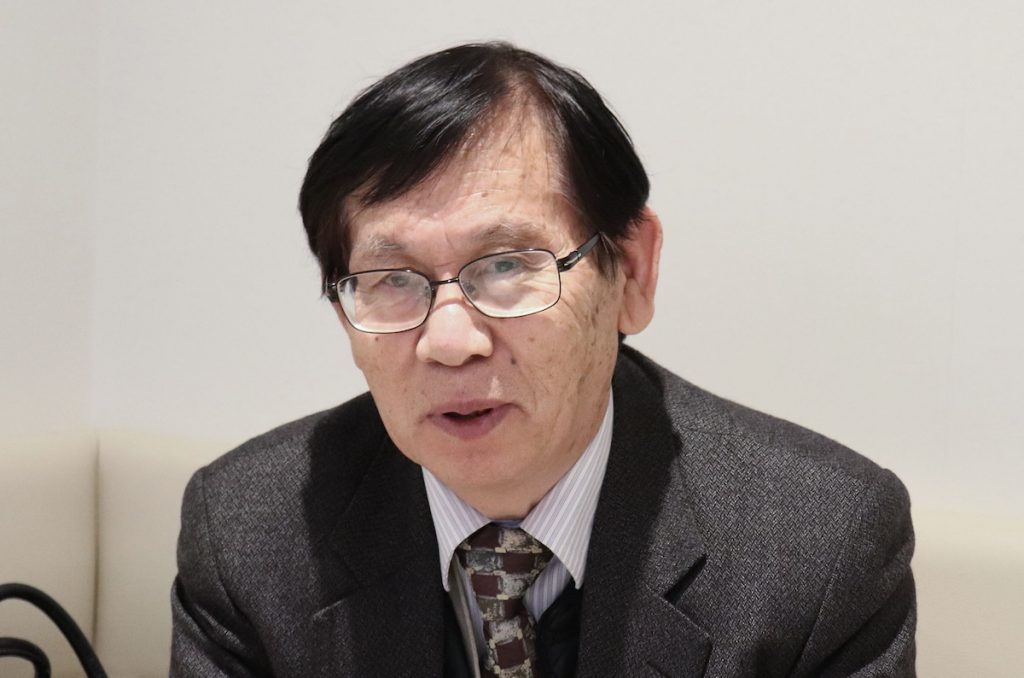
This issue also applies to Japan, which is said to have the world's highest number of dietitians per 100,000 inhabitants.
Tracing the history of dietitians in Japan takes us back to the Taisho era, spanning over 100 years. Then in 1947, the Dietitians Act was enacted, formalizing their training. In 1962, a system for registering dietitians was established. Financial backing for hospital dietitians' nutritional counseling, which is included in medical fees, has contributed to establishing the status of nutritionists in Japan.
However, dietitians engaging in on-the-job dietary counseling often face challenges in academia, where emphasis is put on publishing research. This makes it difficult to become established in positions such as professorships.
The challenge arises primarily because these dietitians do not engage in academic publishing due to the demanding nature of the work, as explained by Professor Yamamoto. Further compounding this issue is the fact that universities and faculties offering dietitian programs often do not provide sufficient instruction on research methodologies.
Achieving More Recognition
"The work of nutritionists spans a wide range. The elderly in care facilities face complex health issues such as difficulty chewing, swallowing, high blood pressure, frailty, and sarcopenia (muscle loss)," explains Professor Yamamoto. "The role of dietitians in providing appropriate meals to address these issues is huge," he stresses.
Emphasizing the need for nutritionists to further improve their own skills, Yamamoto points out the task at hand. "I hope that through the Asian Young Dietitian Network, dietitians can find solutions and make improvements leading to receiving more fair recognition."
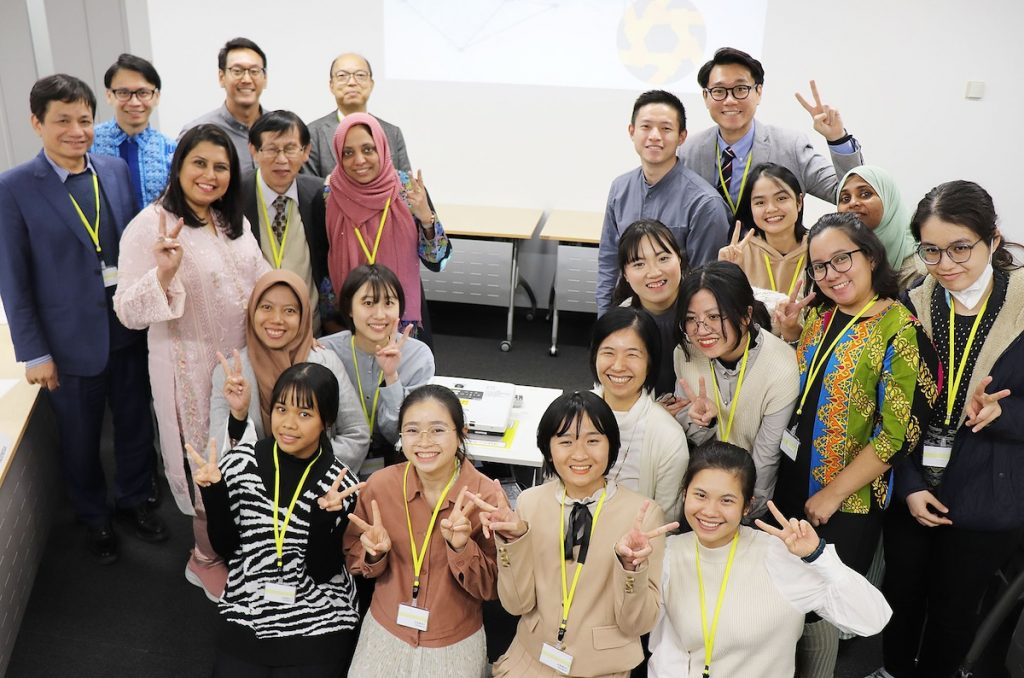
The term "dietitian" is often confused with "nutritionist." While usage varies by country, in many cases "nutritionist" is used in a broad sense to refer to individuals who provide nutritional guidance even without formal qualifications as a dietitian. The network's name uses the term "dietitian" to emphasize the importance of expertise in nutritional guidance and the value placed on practical experience in the field.
Our diets form the foundation of our overall health. The role of dietitians is crucial not only in treating symptoms but also in preventing illnesses and achieving a healthy society.
Yamamoto, S (2023) 'What Dietitians Need for the Future: Evidence-Based Dietetics', Asian Journal of Dietetics Vol. 5, No. 1, pp. 1-4.
(Ajinomoto is a Logo Partner of Japan 2 Earth.)
このページを 日本語 で読む










